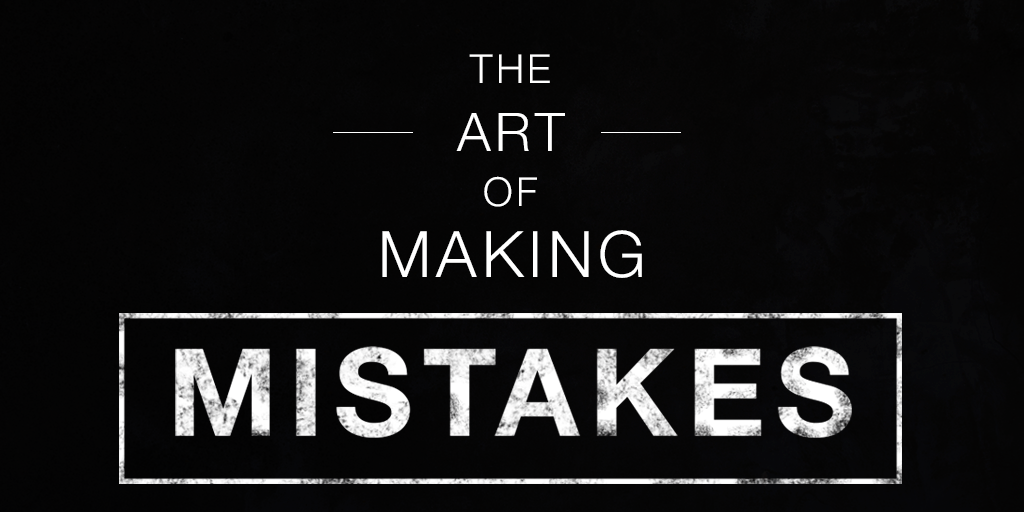The Art of Making Mistakes

By Iva Apostolova
Why are we so afraid of making a mistake? Like any fear, the fear of making a mistake is largely irrational, hence, difficult to control. Without being a Hobbesian, I have to admit, the old man was onto something in adjudicating that we, humans, are largely governed by fear and gain.
The fear of making a mistake is a sub-species of the general fear of vulnerability, of exposing yourself to the harsh and cold world. And to be sure, the world can be harsh and cold. The irony, though, is that succumbing to the fear of vulnerability exposes us to something far worse and potentially destructive: the tyranny of perfectionism. That perfectionism that has to win an argument at all costs. That perfectionism that does not let us sleep at night over a sneeze in the presence of our boss. That perfectionism that turns us into the same petty-minded, judgmental people we feared in the first place. Perfectionism breeds power structures like nothing else does. The fear of making a mistake is the fear of being left behind in the race of winning and accumulating. In today’s culture of omnipresent certification and competence where one is valued by what they produce, not by who they are, making a mistake equals loss of status, potentially even loss of identity.
But if we shift the discourse from power to co-operation, we’ll see that making a mistake has important cognitive and heuristic, other than psychological, dimensions. In making a mistake one realizes one’s limitations. Realizing one’s limitations, in turn, leads to opening up new horizons and in the end, increases both our cognitive capacity, as well as the sum total of knowledge.
Bertrand Russell defended the position that what philosophy holds over and above the sciences is the critical attitude toward one’s presuppositions and first principles, i.e., the engagement in the search for inconsistencies in one’s system of knowledge. Finding systemic errors fine-tunes the faculty of judgment, the one faculty which brings theory and practice together. It is precisely those mathematicians, Russell argued, who dared to imagine the falsehood of the established system, that were rewarded with the ‘discovery’ of non-Euclidean geometry.
Is there a better way of making a mistake then? Like everything else in life, being prepared helps. Anticipating mistakes and taking ownership of them creates a relaxed, even playful environment of interaction. Who would you trust with your thoughts and beliefs – an overachieving nit-picker, or a laid-back oddball? And if you’re feeling particularly brave one day, why not trip over yourself, literally I mean? Just for the fun of it. Don’t forget to put your hands out, though. You’ll see that the ground is not so bad from close-up and low-down.
